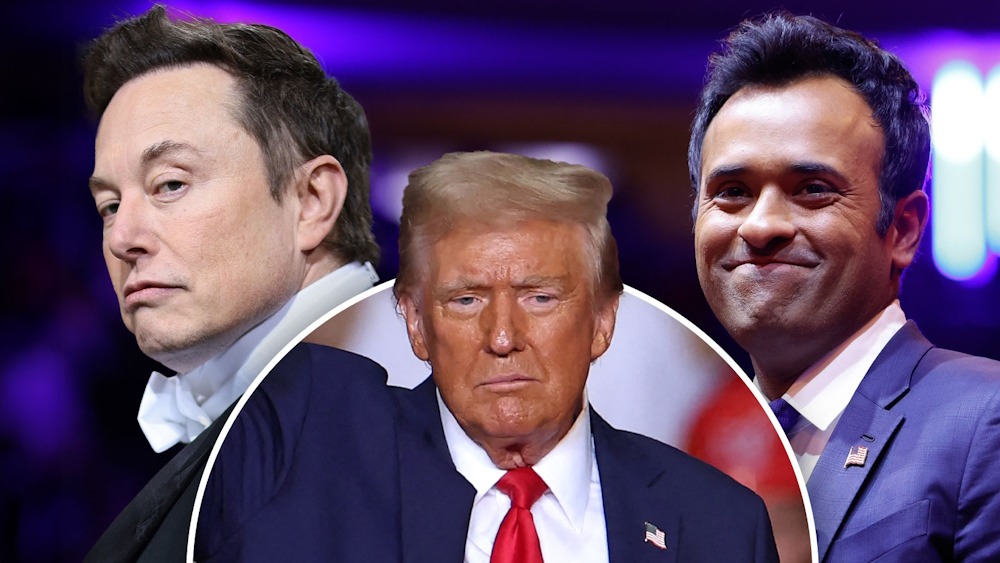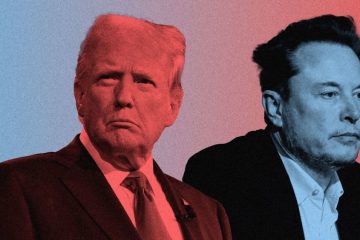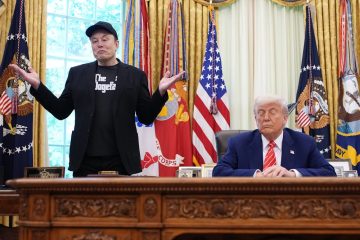Trump selects Musk and Ramaswamy for DOGE

President-elect Donald Trump has appointed Tesla CEO Elon Musk and biotech entrepreneur Vivek Ramaswamy, a previous Republican presidential contender, to spearhead an initiative aimed at reducing expenditure, dismantling regulations, and reorganizing federal agencies.
In a statement released on Tuesday night, Trump announced that Ramaswamy and Musk—the world’s richest individual, managing six enterprises—would head what the president-elect referred to as the Department of Government Efficiency, abbreviated as DOGE. The president-elect stated that the group’s mandate is to enhance the efficiency of government bureaucracy.
DOGE is set to function independently of the federal government, according to Trump, and will collaborate with the White House Office of Management and Budget to execute its recommendations.
Musk is not anticipated to assume a formal role within the government, suggesting that he would probably not be obligated to divest from his extensive business interests.
Trump set a deadline of July 4, 2026, for Musk and Ramaswamy to finalize their efforts, coinciding with the nation’s semiquincentennial celebrations and occurring mere months ahead of the midterm elections.
“A more streamlined government, characterized by enhanced efficiency and reduced bureaucracy, would serve as an ideal tribute to America on the 250th anniversary of the Declaration of Independence,” he stated. “I have every confidence in their success!”
Musk has articulated aspirations to reduce federal expenditure by a minimum of $2 trillion, a target that external analysts have deemed challenging to realize. In fiscal year 2024, government expenditures totaled approximately $6.8 trillion.
Musk’s super PAC, America PAC, allocated approximately $200 million to bolster Trump’s campaign in the presidential election. The billionaire has emerged as one of the president-elect’s most trusted advisers, as reported by sources familiar with the situation. He has participated in transition meetings, provided insights on personnel selections, and engaged in private discussions with Trump at his Mar-a-Lago estate.
The designation for the newly formed group, DOGE, resonates with the name of dogecoin, the cryptocurrency that Musk has often championed in the digital sphere.
Trump and his advisers have pledged to reinstate and broaden the initiatives implemented during his initial term aimed at reducing bureaucratic obstacles and facilitating the dismissal of federal employees.
In 2020, just prior to his departure from office, Trump enacted an executive order that removed certain roles within the federal workforce from the standard competitive hiring processes and civil-service safeguards. The directive granted the administration considerable latitude in deciding which civil-service roles would transition to “at will” appointments, thereby facilitating the dismissal of employees.
Upon assuming the presidency, Biden rescinded the executive order. Advisers to Trump indicate that he is likely to implement a version that could be considerably broader in scope.
During his initial term, Trump instituted a requirement compelling federal agencies to eliminate two existing regulations for each new regulation proposed. In a September address outlining his economic strategy, Trump asserted that in a potential second term, he would abolish at least 10 existing regulations for every new regulation he introduces.
In his bid for the presidency, Ramaswamy prioritized the eradication of government waste as a key element of his platform. Ramaswamy proposed the abolition of several agencies, including the Education Department, the Federal Bureau of Investigation, the Nuclear Regulatory Commission, and the Bureau of Alcohol, Tobacco, Firearms and Explosives. Trump has advocated for the elimination of the Education Department.
However, the task of shutting down a federal agency proves to be more complex than it may initially appear, as noted by seasoned government employees from both political affiliations. Action from Congress would be necessary, and achieving this could prove challenging even if Republicans retain control of the House. The Republican Party is poised to secure a majority in the Senate in the upcoming year.









